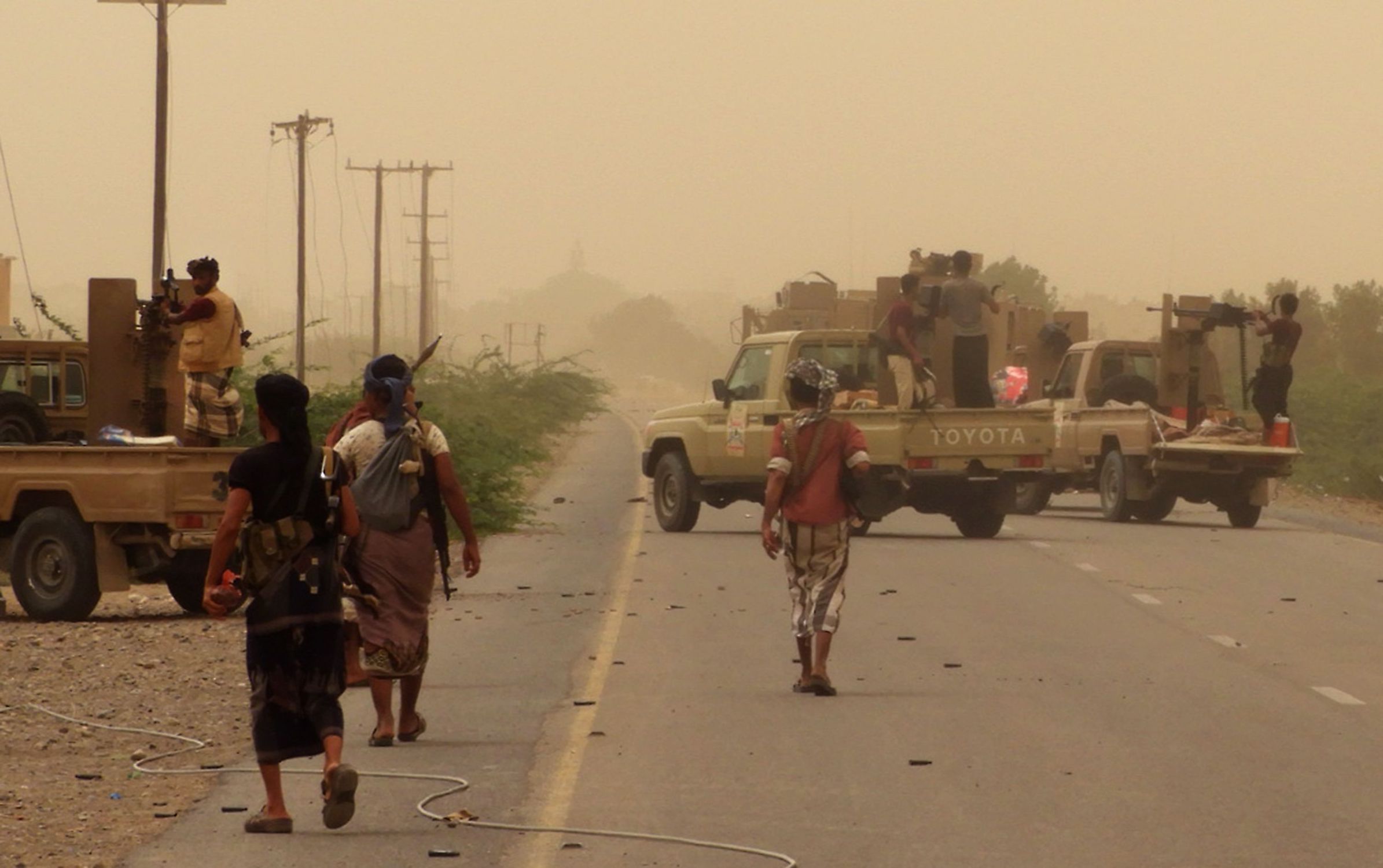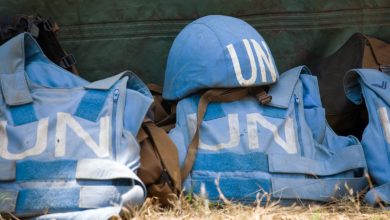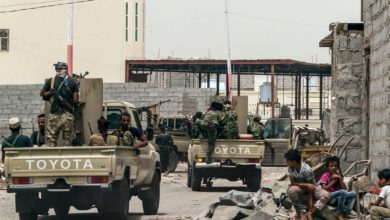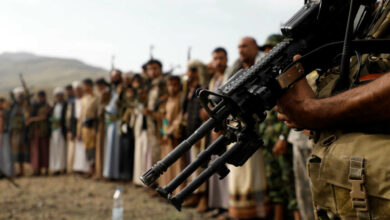Yemen’s warring parties agree to ceasefire, deal for Hodeidah, UN says
United Nations Secretary-General Antonio Guterres announced a series of breakthroughs in peace talks with the warring parties in Yemen, including a ceasefire for a vital port.
If implemented, the deal on the Hodeidah port, a key gateway for aid and food imports to a country where 14 million people stand on the brink of famine, would mark a major turning point after four years of devastating war.
The conflict between the Iran-linked Houthis and the government of Abd Rabbo Mansour Hadi, backed by Saudi Arabia and its military allies, has triggered what the U.N. calls the world’s worst humanitarian crisis, with one child dying of preventable causes every 10 minutes.
The human cost of the war, as well as outrage over the October killing of U.S.-based journalist Jamal Khashoggi in the Saudi consulate in Istanbul, has prompted the international community to take a harder line over the Yemen war, and particularly the role of the Saudi-led coalition.
In a highly symbolic gesture on the seventh and final day of the U.N.-brokered peace talks in Sweden, Yemeni Foreign Minister Khaled al-Yamani and Houthi negotiator Mohammed Abdelsalam shook hands to loud applause – although both later voiced skepticism at separate news conferences.
The weeklong talks, which closed Thursday, left a number of key issues unresolved. A new round of talks is scheduled for the end of January, with analysts predicting pressure on Saudi Arabia to end the conflict will come from the U.S.
Withdrawal from Hodeidah ‘within days’
Under the Hodeidah agreement, released Thursday evening, an “immediate ceasefire” should come into effect in Hodeidah and its three ports upon signing.
“A mutual redeployment of forces shall be carried out from the city of Hodeidah and the ports of Hodeidah, Salif and Ras Issa to agreed upon locations outside the city and the ports,” reads the agreement, without detailing the posts.
That redeployment should take place within a maximum of 21 days from the ceasefire.
A joint Redeployment Coordination Committee to be supervised by the U.N. will be created to oversee the redeployment as well as demining, and the committee chair will report weekly to the Security Council.
The U.N. will increase its presence in Hodeidah city and the three ports, and play a “leading role” in supporting management and inspections at the ports.
Security will be “the responsibility of local security forces in accordance with Yemeni law.”
Al-Yamani, who agreed to the deal in Sweden, declined to specify whether the forces would be solely state security forces but he told AFP they would report to the “central authority” – the government.
But Houthi negotiator Abdelsalam told AFP the phrase referred to the “security forces currently present in Hodeidah” – the rebels.
The rebels hold both Hodeidah and the capital Sana’a, but he Saudi led-military coalition controls Yemen’s maritime borders and airspace.
Saudi Arabia and its allies accuse the rebels of arms smuggling from Iran through Sana’a and Hodeidah. Iran denies the charge.
U.N. chief Guterres said the rivals had also reached a “mutual understanding” on Yemen’s third city of Taiz, the scene of some of the most intense battles in the conflict, to facilitate the delivery of aid. Reuters reported that another joint committee overseen by the U.N. will set up humanitarian corridors to Taiz.
‘More than expected’
No deal has been reached on the future of the airport in Sana’a or on economic measures needed to spare the population from further hunger, although Reuters reported a Houthi spokesperson as saying they have agreed “in principle” on a U.N. role there.
Sana’a airport, which has been closed to commercial flights for nearly three years, will be discussed at the next round of talks, U.N. Special Envoy Martin Griffiths said.
Lead rebel negotiator Abdelsalam said the Houthis had made “major concessions” on Hodeidah.
Foreign Minister al-Yamani said the deal was the the biggest step forward since the outbreak of the war but remained “hypothetical.”
“We will wait and see,” he told AFP.
Analysts said the Rimbo talks progressed better than anticipated, two years after the last negotiations hosted by Kuwait in 2016 collapsed with no breakthrough after three months.
“The Sweden talks have achieved more than anyone expected,” the International Crisis Group told AFP.
“We have heard a different tone from the government of Yemen in these talks, and U.S. pressure has clearly focused minds in the Gulf.”
US Senate vote
The Khashoggi case, along with the humanitarian crisis in Yemen, were the turning point for the U.S.
The U.S., Britain and France are still the biggest arms sellers to Saudi Arabia.
Both the Houthis and government alliance stand accused of failing to protect civilians. The U.N. last year blacklisted the Saudi-led coalition for the killing and maiming of children in air raids.
The U.S. Senate on Wednesday voted to advance a resolution that ends backing for the Saudi-led intervention by 60 votes to 39, with 11 Republicans joining Democrats to back the measure.
If the upper house approves the resolution, it is likely to run aground in the final vote Thursday in the lower House of Representatives, where Republicans hold the majority until January 3, and U.S. President Donald Trump has a veto right.
The Yemen ambassadors of core players in the conflict, including Saudi Arabia and the United Arab Emirates, were in Rimbo for the last day of negotiations. U.K. Foreign Secretary Jeremy Hunt also met with both the government and rebels Thursday.
With reporting from AFP












7 Comments